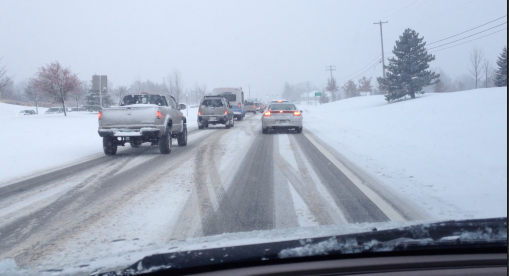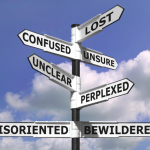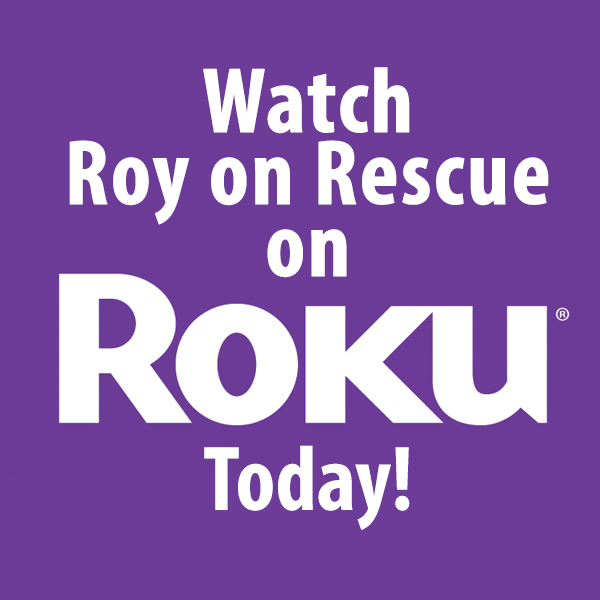Hello Rescue Fans!
In this episode, we breakdown a real situation that occurred this year where over 122 cars were involved in a multi-car pile up that resulted in 1 fatality and 22 others going to the hospital. How would you survive this situation and is there something you can do to ensure you have a better chance to make it out alive? You may want to watch this video today!
Category Archives: Automobile
4 Must Have Items For Winter Weather Preparedness
In this episode, I talk about how I almost headed out on the road without my back up winter weather gear. But then I thought better of it and practiced what I preach. I thought I’d make it into a RoyOnRescue episode and show that we all have to be disciplined to prepare and not get caught off guard. I hope it helps!
How To Survive Icy Driving Conditions and Crashes
In this episode I revisit an annual subject that can never be taken too lightly. Safe driving in winter snow and ice. Too many times people follow too closely and don’t leave enough room to evade a crash or to stop at an intersection. If you want to be prepared to survive this winter’s icy driving, be sure to watch this episode of RoyOnRescue and learn what RoyOnRescue is preparing for the new year!
Professional Rescuers and Good Samaritan Act Part 2
I had a royonrescue.com reader who had a concern that the post about the Good Samaritan Act might scare rescuers into not providing care while off duty. I think this may have been a misunderstanding and I must clarify that I’m speaking to medical professionals that have training and expertise in the area of rescue, not those volunteers, family members, bystanders without any training who may want to try and get involved. Below is the comment from this individual and my response back to them with references. I hope this helps anyone else who may have had the same concern or question.
Question/Comment: 4-3-11
Dear Mr. Shaw,
I found your video, Professional Rescuers and The Good Samaritan Law, discouraging. I agree with just about everything you advised, but I have one major complaint. You said, “You can do care up to a specific level. In fact, that of which you are trained to do proficiently.” I think what you have said is misleading.
If you apply those restrictions to Good Samaritan laws, you defeat the intent of those laws*. Here’s a quick example: I would guess that 90% of civilians who have taken CRP classes (as I have) are not proficient in CPR. They have a good idea what CPR is, but in an emergency with the adrenalin flowing, I can see them making numerous missteps, which may or may not affect the outcome. According to your advice even a Red Cross card carrying volunteer should not attempt CPR because he/she is not proficient. And what about the AEDs appearing in malls and schools? According to your advice, the average passer-by who’s had no training should only call 9-1-1 and leave this new fangled equipment for the experts! I’m sure that is not what you would advise.
Then, there is the example of your buddy, the snowmobiler, with the crushed & torn larynx. It sounds like you let him die? You knew what needed to be done, a surgical tracheotomy. Of course your snowy scene was “an uncontrolled environment”. Isn’t that’s why it’s an “emergency”. You had the equipment and you had the training, but you chose not to do that which you could do. Personally, I think you should have at tried. (Jas 4:17) Sure, like you said, the scene was far from perfect but you had what you needed to perform the procedure. And yes, you may be right, there’s a good chance you would not have been successful. But if your friend could have, don’t you think he or his wife would have wanted you to at least try?
Instead of encouraging guys like me to do what they reasonable can, you’ve lead us to believe we need to be trained or we will be held liable for trying. The best way to ensure that one follows your advice to “Do No Further Harm” is to look the other way.
FYI: I carry Celox & QuikClot, which I know state protocols does not allow EMTs and medical professionals use. I’ve never used it nor been trained, but if on the firing range someone gets shot and I have no other means to stop a bleed out, I intend to try it. Hopefully, I will never be put to the test on the highway or the rifle range, but despite your warning about “level of training” and “proficiency” it is an option I may have to pick.
Despite my disapproval of this video, I have check out some of your other stuff and I think you do a pretty good job, esp. your written responses (unlike mine).
Thanks for sharing
My Response:
Hello “Name Not Disclosed” ,
I appreciate you taking the time to respond to the royonrescue.com blog entry, “Professional Rescuers and The Good Samaritan Law”.
I wanted to clarify the “providing care up to ones level of trained proficiency”.
The Good Samaritan Act in the State of Michigan states;
“691.1501 Physicians, physician’s assistant, or nurses rendering emergency care or determining fitness to engage in competitive sports; liability for acts or omissions; definitions.
(1) A physician, physician’s assistant, registered professional nurse, or licensed practical nurse who in good faith renders emergency care without compensation at the scene of an emergency, if a physician-patient relationship, physician’s assistant-patient relationship, registered professional nurse-patient relationship, or licensed practical nurse-patient relationship did not exist before the emergency, is not liable for civil damages as a result of acts or omissions by the physician, physician’s assistant, registered professional nurse, or licensed practical nurse in rendering the emergency care, except acts or omissions amounting to gross negligence or willful and wanton misconduct.
(2) A physician or physician’s assistant who in good faith performs a physical examination without compensation upon an individual to determine the individual’s fitness to engage in competitive sports and who has obtained a form described in this subsection signed by the individual or, if the individual is a minor, by the parent or guardian of the minor, is not liable for civil damages as a result of acts or omissions by the physician or physician’s assistant in performing the physical examination, except acts or omissions amounting to gross negligence or willful and wanton misconduct or which are outside the scope of the license held by the physician or physician’s assistant. The form required by this subsection shall contain a statement indicating that the person signing the form knows that the physician or physician’s assistant is not necessarily performing a complete physical examination and is not liable under this section for civil damages as a result of acts or omissions by the physician or physician’s assistant in performing the physical examination, except acts or omissions amounting to gross negligence or willful and wanton misconduct or which are outside the scope of the license held by the physician or physician’s assistant.
(3) A physician, physician’s assistant, registered professional nurse, or licensed practical nurse who in good faith renders emergency care without compensation to an individual requiring emergency care as a result of having engaged in competitive sports is not liable for civil damages as a result of acts or omissions by the physician, physician’s assistant, registered professional nurse, or licensed practical nurse in rendering the emergency care, except acts or omissions amounting to gross negligence or willful and wanton misconduct and except acts or omissions that are outside the scope of the license held by the physician, physician’s assistant, registered professional nurse, or licensed practical nurse. This subsection applies to the rendering of emergency care to a minor even if the physician, physician’s assistant, registered professional nurse, or licensed practical nurse does not obtain the consent of the parent or guardian of the minor before the emergency care is rendered”. http://nspc203.com/leg/MichiganGoodSamaritanActForMedicalProfessionals.htm
And in one other source I found an explanation that goes on to describe the Good Samaritan Act this way; “While Good Samaritan laws vary from state to state, these laws typically apply when you take purely voluntary, good-faith action to help another person at the scene of an emergency, and the person does not object to your help. If you provide help to another person under a Good Samaritan law, keep in mind that you must exercise the same standard of care and/or treatment that you normally help to in your profession. In other words, if you’re a trained medical professional, then you must act according to medical professional standards. However, if you are not trained in a medical professional, then your duty may be only to call for help or other forms of help, but not to render medical care or first aid. So long as you act reasonably in light of the circumstance, and in keeping with professional standards, you probably will not be liable in a jurisdiction that has enacted a Good Samaritan law”.
http://resources.lawinfo.com/en/Articles/personal-injury/Federal/what-are-good-samaritan-laws.html
So you see, this is why no matter how much I would like to re-assure professionals that they are completely safe when rendering aid and especially “creative solutions medicine” to a person without repayment as a Good Samaritan, the professional still needs to understand that because of their training, they do have a duty to perform to a “standard of care” appropriate for their profession even if it’s frustrating and they may think that they can do more.
Individuals who offer Good Samaritan aid and have never been trained in any medical area may not be held to the same standards if they are sued, but the original blog was directed toward those with training and professional expertise in the area of rescue which is a different scenario.
I hope this helps to clear up any misunderstanding or confusion and please don’t hesitate to contact me for more clarification or for any future subjects down the road.
Best Wishes,
Roy Shaw, RoyOnRescue.com
royonrescue@gmail.com



